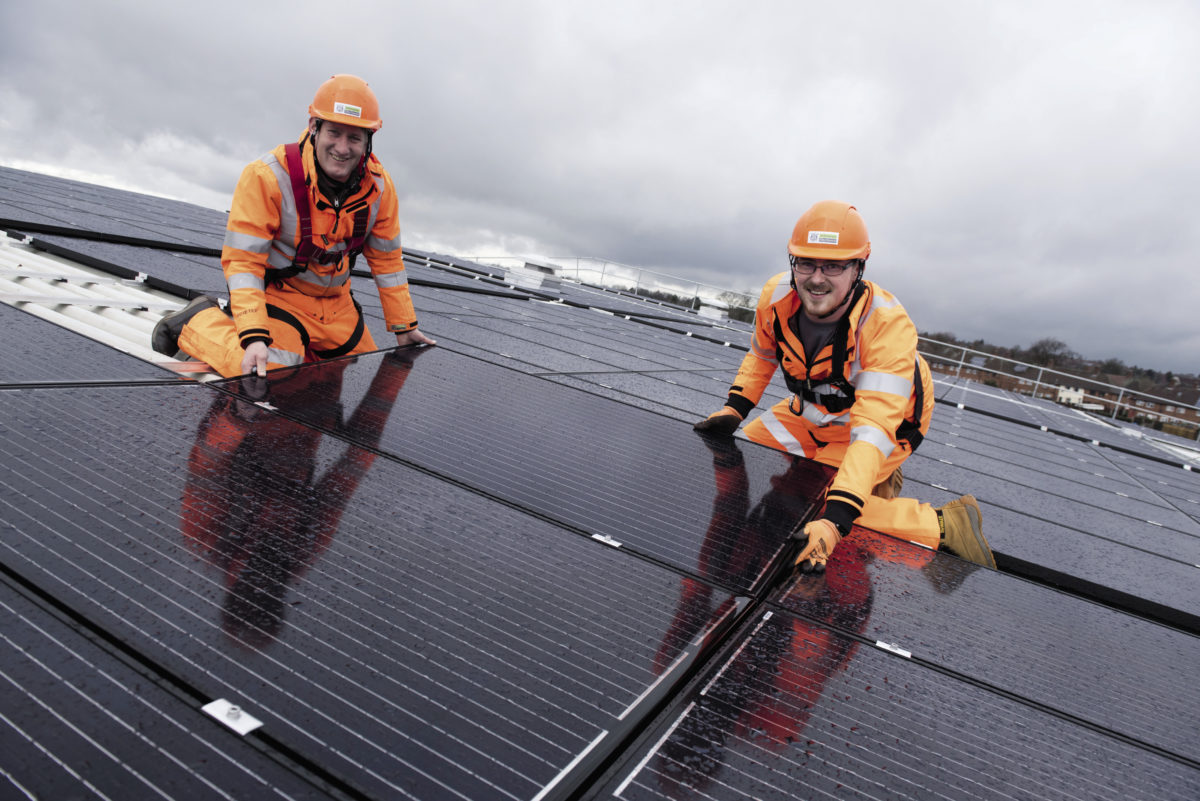The UK Labour Party has unveiled an ambitious new energy plan that will see PV modules installed on 1.75 million homes, via fair export tariff payments and grant funding. The policy is part of a broader effort by the party to improve the energy efficiency of homes throughout the country.
The policy will specifically target low-income households, particularly people in social housing, as part of the party’s broader plan to improve the energy performance of UK homes.
“Too many think of green measures as just another way for companies or the government to get money out of them, while the rich fly about in private jets and heat their empty mansions,” said Jeremy Corbyn, the leader of the Labour Party. “Labour’s approach is different. Our Green Industrial Revolution will benefit working class people with cheaper energy bills, more rewarding well-paid jobs, and new industries to revive the parts of our country that have been held back for far too long.”
According to the plan, 1 million state-subsidized housing units will be fitted with solar panels to provide low-income households with free electricity. All surplus electricity will be fed back into the national grid, the party said in an online statement.
In addition, the Labour Party has vowed to facilitate the installation of PV modules on 750,000 more homes via interest-free loans, grants and unspecified regulatory changes. Labour believes these efforts will create 16,900 new jobs and save 7.1 million tonnes of CO2, which it says is akin to removing 4 million cars from UK roads.
UK developer Solarcentury welcomed the announcement, with considerable praise for the policy's focus on low-income households.
“Financing the upfront cost of residential solar has always been a barrier to solar power adoption, so Labour’s plan to offer interest-free loans to encourage take up is particularly welcomed by us,” said Neil Perry, CFO of Solarcentury. “The plans are ambitious in terms of costing and scale, but this is the time to be bold in adopting renewable energy and moving towards a greener way of living.”
The London-based Solar Trade Association (STA) also hailed the announcement as a positive development. It noted how the new policy comes on the heels of the recent closure of the feed-in tariff and the export tariff, just as the industry pushes back against newly proposed changes to the taxation of PV systems combined with battery storage.
“All modern political parties must now think big when it comes to empowering people to act on the biggest issue of our times: climate change,” said Léonie Greene, the STA’s director of advocacy and new markets. “The solar industry would relish scaling-up rapidly to deliver on these commendable ambitions which would see deployment rates double compared to the past decade. A solar homes push would give a tremendous boost to green jobs across the UK, which are good quality and local in nature.”
In addition, the Renewable Energy Association (REA) praised the new policy announcement.
“Solar is one of the cheapest forms of energy. After years of damaging policies we would welcome the kick start to an industry that was thriving three years ago,” said Dr. Nina Skorupska CBE, chief executive of the REA. “We need to focus on how we can achieve our climate targets cost effectively, and how we can get there practically. Networks and the grid have a vital role to play in supporting a cheaper, greener and more flexible energy market, and whilst we would support more policy and regulatory direction from government on how to achieve this, the priority must be to accelerate the decarbonization of our energy systems.”
This content is protected by copyright and may not be reused. If you want to cooperate with us and would like to reuse some of our content, please contact: editors@pv-magazine.com.



By submitting this form you agree to pv magazine using your data for the purposes of publishing your comment.
Your personal data will only be disclosed or otherwise transmitted to third parties for the purposes of spam filtering or if this is necessary for technical maintenance of the website. Any other transfer to third parties will not take place unless this is justified on the basis of applicable data protection regulations or if pv magazine is legally obliged to do so.
You may revoke this consent at any time with effect for the future, in which case your personal data will be deleted immediately. Otherwise, your data will be deleted if pv magazine has processed your request or the purpose of data storage is fulfilled.
Further information on data privacy can be found in our Data Protection Policy.